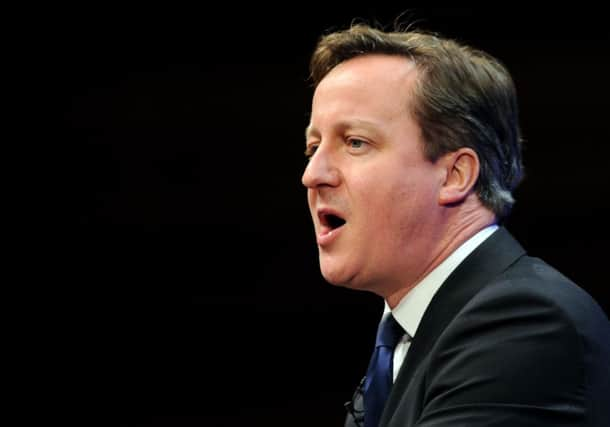Leaders: PM’s Ukraine move is a calculated gamble


That was how the Americans began their involvement in South-East Asia, then it was arming rebel groups, then it was troops on the ground, and lots of them. Of course there is nothing to say that that course of action has to be repeated, Britain has sent military advisers in to other theatres of war without full-scale ground commitment following, but it has to be a spectre hanging over the departing troops.
There can be no doubt it will be viewed as an escalation by the Russians, and that does not bode well for a negotiated peace. However, the prospect of a negotiated truce does seem to have faded, none of the treaties so far has lasted for any length of time. Yesterday, pro-Russian rebels said they were pulling back heavy weapons from the front line in eastern Ukraine as agreed as part of the most recent ceasefire, but Kiev has disputed the claims. There is no ceasefire by any meaningful definition of the term.
Advertisement
Hide AdAdvertisement
Hide AdThe United States has already said it is planning to send troops to train three Ukrainian battalions – now the British will join them. There has to be some doubt as to exactly what these British and US troops will accomplish in terms of training the Ukrainians. Ukraine is no military johnny-come-lately. It has been reported that its army, since the fighting with pro-Russian separatists began, has swollen to 250,000 active duty personnel, not counting paramilitary forces such as the border guards or the security service. That makes it the largest in Europe.
After the collapse of the Soviet Union, Ukraine’s forces included a rocket army, four air force armies, an air defence army, three regular armies, two tank armies, one army corps and the Black Sea Fleet. Although Ukraine has been steadfastly trying to develop its own independent military industry, that has largely and unsurprisingly been based on the old Soviet technology. So given the equipment the Ukrainian troops will be using, it is hard to see the efficacy of British soldiers providing logistical and infantry training, or, given the civil war element of hostilities, how they will add greatly to the intelligence picture.
Instead it is revealed as a political move, designed to reassure Ukraine that Nato is still keen to maintain their relationship. But Nato’s creeping towards Russia’s borders – and that is how Russia sees it – was one of the factors that began the military action in the Crimea and Ukraine. And the biggest fear, of course, is that the Baltic states become the next battleground, literally. US and British troops moving in to the Ukraine, never mind how small the numbers, will do nothing to persuade the Russians that the perceived threat from Nato is receding.
24 hours is a long time in politics
Just 24 hours after Sir Malcom Rifkind said he would fight the allegations of cash-for-access “all the way”, he has stepped down as chairman of Parliament’s intelligence and security committee and announced he is also standing down as a Conservative MP a term early.
It is an ignominious end to a distinguished career. On the face of it, it seems strange that his position has changed so much in such a short time. Indeed, Sir Malcolm says he may have made “errors of judgment” after being secretly recorded apparently offering his services to a private firm, but denied any wrongdoing. If there has been no wrongdoing then why should this former minister of state depart?
The truth is that the deafening silence from Downing Street is what swung this decision. In the run up to one of the most closely fought and hard-to-predict general elections David Cameron could not allow himself the possibility of a Sir Malcolm-shaped electoral liability.
Sir Malcolm’s departure in these circumstances is no doubt unsatisfactory to him if he feels he has done no wrong, but is is also unsatisfactory from the public’s point of view, and actually not good for democracy. The public now see that actions such as that Sir Malcolm was accused of result in the loss of a job, but will probably not be taken any further, or if it is will probably get bogged down for ages in process and counter argument.
So there is still a lack of clarity over what MPs can and can’t do, and all that is left after this latest episode is yet another dent in the already dented opinion of the public concerning the probity and integrity of our most important institutions.
FOLLOW US
SCOTSMAN TABLET AND MOBILE APPS